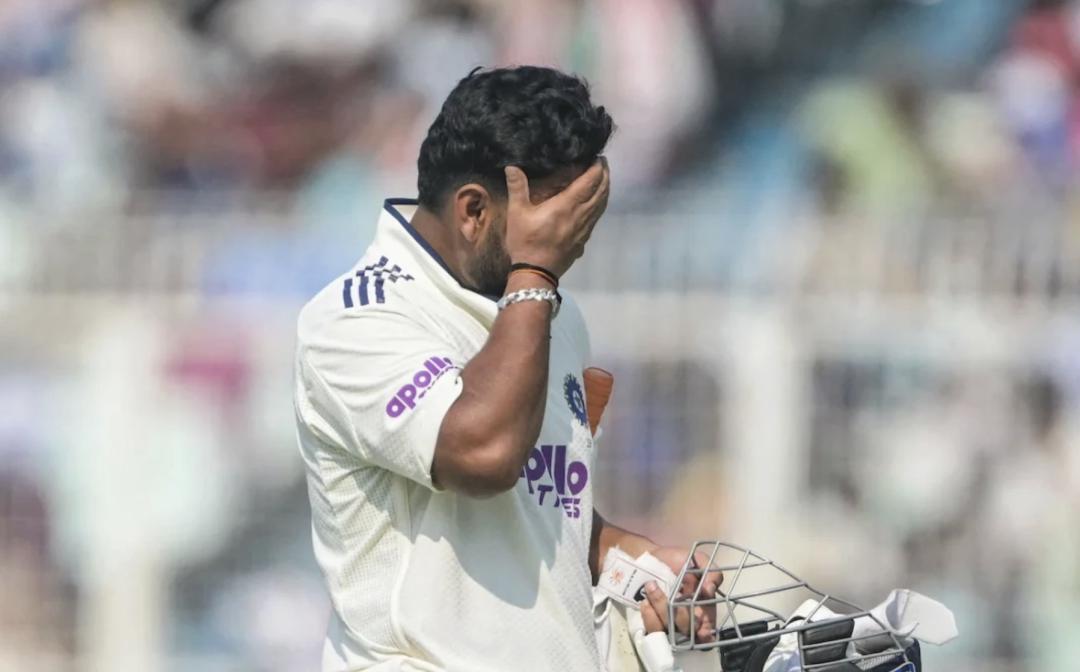
It’s Disappointing, We Need Clearer Mindset: Pant on Series Loss
The Indian cricket team’s recent Test series against South Africa ended in a disappointing whitewash, with the visitors claiming a 2-0 victory on Indian soil. The series loss has raised several questions about the team’s performance, strategy, and mindset. In a post-series press conference, India’s Test stand-in captain, Rishabh Pant, expressed his disappointment with the outcome and emphasized the need for a clearer mindset.
“We are playing at home, but we need to be clear with our mindset,” Pant said, reflecting on the series. “It’s a little disappointing, but we need to improve as a team.” These words from the young captain highlight the team’s struggles to adapt to the challenges posed by the South African team. Despite being the home team, India failed to capitalize on the familiar conditions, and their performance was marred by inconsistencies and lack of clarity in their approach.
Pant was quick to acknowledge that South Africa played better cricket throughout the series, stating, “They dominated the series.” This admission is a testament to the visitors’ superior performance, which was characterized by disciplined bowling, aggressive batting, and sharp fielding. The South African team’s ability to adapt to the Indian conditions and execute their plans effectively was a key factor in their success.
The series loss has sparked a debate about the Indian team’s preparation, selection, and strategy. Many experts and fans have questioned the team’s decision-making, particularly with regards to the batting order, bowling combinations, and field placements. While it is easy to criticize the team’s performance in hindsight, it is essential to recognize that the Indian team faced a tough opponent in South Africa, who were determined to make a statement on foreign soil.
One of the primary concerns for the Indian team is their batting performance. The team’s inability to post big scores and bat for long periods has been a recurring issue in recent times. The batsmen struggled to cope with the South African bowlers’ pace, bounce, and movement, which exposed their technical vulnerabilities. Pant, who has been one of the team’s most consistent performers, acknowledged that the batting unit needs to improve significantly.
The bowling department, which has been a strength for the Indian team in the past, also failed to deliver in the series. The pacers struggled to find their rhythm, and the spinners were unable to exert the same level of control and pressure that they have in the past. The lack of penetration and wicket-taking ability from the Indian bowlers allowed the South African batsmen to dictate terms and post big scores.
The series loss has also raised questions about the team’s leadership and captaincy. Pant, who was leading the team in the absence of regular captain Rohit Sharma, faced a baptism by fire in his first series as captain. While he showed glimpses of his aggressive and proactive approach, he also faced criticism for some of his decisions on the field. However, it is essential to remember that Pant is still a young captain, and he will learn from his experiences and grow as a leader.
As the Indian team reflects on the series loss, they must identify areas for improvement and work on developing a clearer mindset. This involves being more proactive, adaptable, and resilient in the face of adversity. The team needs to develop a more cohesive unit, where each player understands their role and contributes to the team’s overall performance. The support staff, including the coaches and selectors, must also play a crucial role in helping the team prepare and perform better.
In conclusion, the Indian team’s series loss to South Africa is a disappointment, but it is not a disaster. The team has the talent, skill, and potential to bounce back and perform better in the future. As Pant said, “We need to improve as a team,” and this improvement must start with a clearer mindset and a more cohesive approach. The Indian team must learn from their mistakes, work on their weaknesses, and develop a more proactive and resilient mindset to succeed in the competitive world of international cricket.





